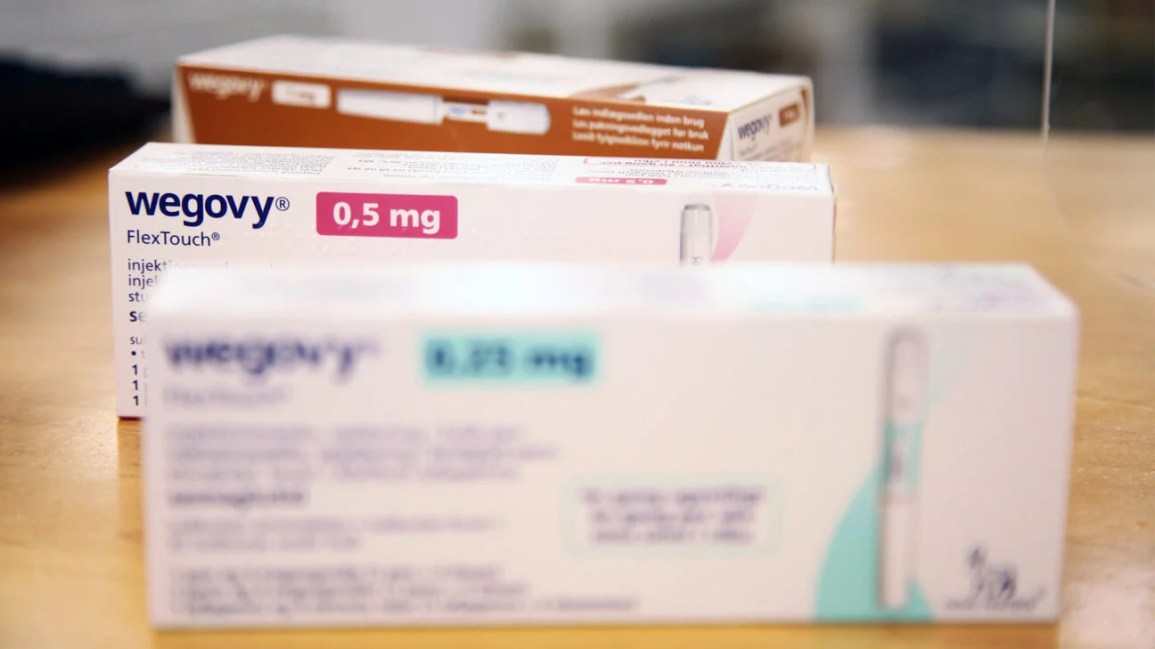Cardiovascular
Weight-Loss Drug Wegovy Lowers Heart Attack, Stroke Risk by 20%
- The drug Wegovy was found to reduce risk of certain cardiac events by as much as 20% in a new study.
- Drugmaker Novo Nordisk announced the preliminary results on August 8 in a news release.
- A similar trial for Ozempic showed that it reduced the risk of heart attack and heart attack-related death by 26.
Anti-obesity drug Wegovy reduced the risk of heart attack, stroke, and heart attack-related death by 20% compared to people taking an inactive placebo, a clinical trial in people with cardiovascular disease shows.
Drugmaker Novo Nordisk announced the preliminary results on August 8 in a news release. The results have not yet been published in a peer-reviewed journal, but they will be presented later this year at a scientific conference, the company said.
The five-year trial involved over 17,000 adults 45 years or older with cardiovascular disease who were overweight or had obesity but with no history of diabetes. Researchers randomly assigned people to receive weekly injections of Wegovy or the placebo.
“This study is significant because it shows benefits for cardiovascular risks [in people without diabetes], which no weight loss medication has done before,” said Dr. Sebastian Eid, a bariatric surgeon and weight loss specialist with Hackensack University Medical Center in New Jersey.
Weight loss often benefits the heart
A similar trial for Ozempic, a type 2 diabetes drug that uses the same ingredient, semaglutide, showed that it reduced the risk of heart attack, stroke and heart-related death by 26% over two years, compared to placebo.
Dr. Brian Kolski, a cardiologist at Orange County Heart Institute and director of Structural Heart Disease at Providence St. Joseph Hospital in Orange County, Calif., said the heart-related benefits of Wegovy are not unexpected.
“[This class of drugs] do seem to be quite effective in producing weight loss,” he told Healthline, “and that weight loss, as we would expect, should have some cardiovascular benefits.”
Other treatments for obesity also show heart-related benefits. For example, the largely plant-based Mediterranean diet lowers the risk of coronary heart disease, stroke and overall cardiovascular disease. It has also been linked to moderate weight loss, at least over the short term.
Bariatric surgery, another treatment for obesity, has been shown to reduce the risk of cardiovascular disease, with stronger results than the Wegovy trial.
“Multiple studies show bariatric surgery patients experience a significant decrease in the risk of developing major cardiovascular events such as heart attacks, heart failure or ischemic strokes,” Eid told Healthline.
In a five-year study published in 2021, bariatric surgery reduced the risk of heart attack, stroke or dying from any cause by 44% in people with obesity; it also reduced the risk of dying from cardiovascular disease by 65%. Both were in comparison to people with obesity who didn’t undergo surgery.
Another tool for reducing obesity
According to Nova Nordisk’s release, Wegovy “appeared to have a safe and well-tolerated profile,” in line with previous trials of the drug, but the company didn’t provide details from the new study.
The release also did not discuss the effects of the drug on each specific measure: heart attack, stroke and cardiovascular death.
However, given the promising new results, Wegovy “has the potential to change how obesity is regarded and treated,” Martin Holst Lange, executive vice president for development at Novo Nordisk, said in the release.
Eid agrees: Once the full trial results are published, it will “potentially result in cardiovascular risk factors being considered as indications for insurance coverage of Wegovy,” he said. As a result, “it could be prescribed to patients with obesity at risk of cardiovascular disease.”
The company said it will ask the U.S. Food and Drug Administration and European regulators this year to add cardiovascular benefits to the drug’s prescribing information.
Eid also thinks the new trial may shift the discussion of obesity to be firmly considered a medical condition. “This can help with creating better treatments,” he said.
Kolski pointed out that doctors who work with patients with obesity already realize there’s more to weight loss than just eating less and exercising more.
“There’s definitely a component that’s genetic, that’s metabolic,” he said. “So this drug is another tool to help those patients, besides diet and lifestyle modifications.”
Limited access to anti-obesity drugs
Demand for Wegovy is already high, with Novo Nordisk struggling to keep up. Once the results of the new trial are published in a peer-reviewed journal, even more doctors may prescribe the drug.
Currently, Medicare does not cover Wegovy or other anti-obesity drugs. In addition, some insurance companies and employers recently ended coverage of Wegovy and similar medications due to increasing costs.
However, the publication of the full results from the new trial may improve health insurance coverage of Wegovy, which costs $1,349 a month before insurance.
Right now, though, access to anti-obesity drugs continues to be an issue for many Americans.
Randa Deaton, vice president of purchaser engagement for Purchaser Business Group on Health, a nonprofit coalition representing nearly 40 private employers and public entities, said while positive results from clinical trials are encouraging, the ultimate issue is affordability and its impact on access.
“Employers are committed to covering medications in line with appropriate use,” she told Healthline, “but employers and employees continue to struggle with excessive drug prices and costs.”
“If these drugs are indeed producing such good health outcomes with potential for a tremendous new patient pool,” she added, “why would the pharmaceutical companies not price them more competitively to make access and affordability less of a barrier?”
Takeaway
A new study from Novo Nordisk found the anti-obesity drug Wegovy reduced the risk of heart attack, stroke and heart-related death by 20% in people taking the drug compared to people taking a placebo.

